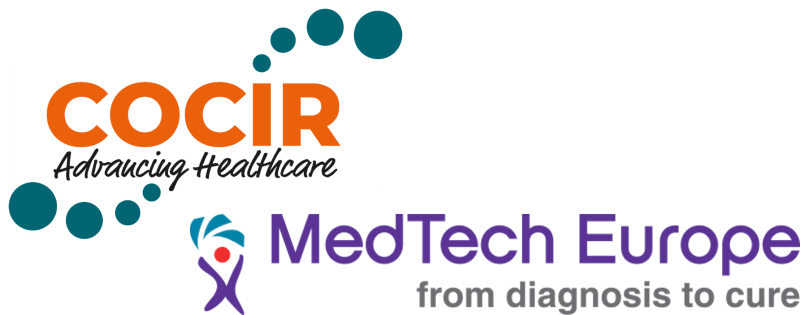The next European Health Commissioner has urgent deficiencies to tackle in the EU’s regulatory system for medical technologies

The next European Health Commissioner has urgent deficiencies to tackle in the EU’s regulatory system for medical technologies
COCIR and MedTech Europe are delighted to read that the Mission Letter by Ursula Von der Leyen, President of the European Commission, for the European Health Commissioner Designate tasks him with ensuring both availability of medical devices and competitiveness of our medical technology industry. The scope of action extends to stepping up the implementation of the current EU regulatory framework and evaluating the need for legislative reform. It is essential that the scope of this priority area covers both medical devices and diagnostics, including diagnostic imaging technologies and in vitro diagnostic medical devices.
Both work to further implement the current system – and legislative changes to address its deficiencies – are needed without delay. “Europe needs regulations for medical technologies that are efficient, innovation-friendly and well-governed, to deliver safe and effective medical technologies to health systems and patients in a seamless and timely manner. This also is critical for ensuring the competitiveness of the medical technologies industry, which underpin our healthcare systems both in Europe and globally,” say Annabel Seebohm of COCIR and Oliver Bisazza of MedTech Europe. Both EU trade associations have proposed necessary legislative changes to achieve these goals .
Today there is broad consensus that the two medical technology regulations, the In Vitro Diagnostic Medical Devices Regulation and Medical Devices Regulation are not fully delivering for healthcare as originally intended by the EU legislator. While implementation of the regulatory framework has progressed since publication of these Regulations in 2017, their day-to-day execution remains unpredictable, complex, slow and costly thus hampering competitiveness and innovation. The result is that medical technologies – both new innovations and those already on the market but which now need to transition to both the IVDR and MDR – currently struggle to reach European patients and healthcare systems.
A critical focus for the entire college of Commissioners must be to ensure that EU rules are fit for purpose and to reduce the administrative complications. Urgent attention is needed to simplify requirements and reduce bureaucracy for both the Medical Devices and In Vitro Diagnostic Medical Devices Regulations. There also are opportunities to modernise and optimise these regulations, for example by permitting wider use of electronic instructions for use and building a framework for digitalisation of documentation.
MedTech Europe and COCIR stand ready to help and contribute to the mission ahead ensuring that Europe’s current and future regulatory framework for medical technologies effectively meets the needs of patients and healthcare systems.
